
Story of the Week... El Niño/La Niña Update... Toon of the Week... Video of the Week... Coming Soon on SkS... Poster of the Week... Climate Feedback Reviews... SkS Week in Review... 97 Hours of Consensus...
COP23: Writing the Paris accord rule book
Having agreed to limit global warming, the COP must now figure out how to measure progress toward the goals set in Paris. Without double-checking this progress, the climate goals won't be reached.

Two years after the world committed to climate action in Paris, negotiators are still trying to figure out the nuts and bolts of the global deal to limit global warming to less than 2 degrees Celsius.
A big part of that is developing a plan to monitor and verify the pledges made by nearly 200 countries to reduce greenhouse gas emissions. During the two-week long COP23 talks in Bonn, negotiators are focusing, in part, on developing a system to make those measurements.
Writing that rule book is no easy task, says University of Edinburgh climate scientist Paul Palmer, part of an international team that assesses heat-trapping gases in the atmosphere.
"We need to measure carefully. We'll be looking for small, gradual reductions of large numbers, so we need to make sure we get the numbers right," Palmer told DW.
COP23: Writing the Paris accord rule book by Bob Berwyn, Deutsche Welle (DW), Nov 7, 2017
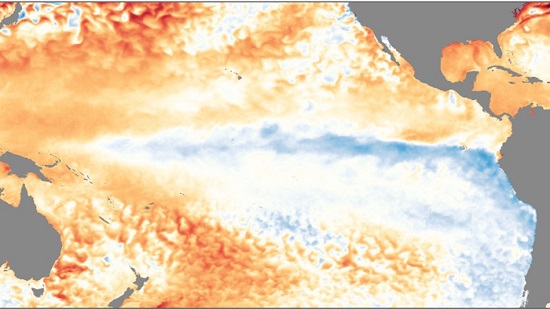
La Niña is back, ya'll. And it may have major implications for your winter weather, depending on where you live.
La Niña conditions were formally declared present in the tropical Pacific Ocean on Thursday, in a statement from the National Oceanic and Atmospheric Administration (NOAA). The agency's scientists found a large expanse of the equatorial tropical Pacific Ocean to feature cooler than average waters both at the surface and extending into deeper waters. The atmosphere is responding to this in ways that match expectations for a La Niña event.
In fact, the weather for much of the fall across parts of the U.S. has featured La Niña-like fingerprints, with milder than average conditions across the South and East, in particular.
La Niña is officially here to shape U.S. winter weather, along with global climate by Andrew Freedman, Mashable, Nov 10, 2017
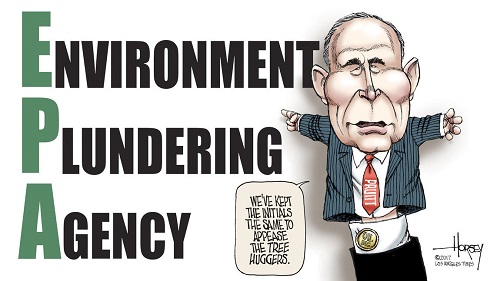
“This is like throwing away the medical records of a sick patient,” said David Gallaher of the National Snow and Ice Data Center in Boulder, Colorado. “Our world is ailing and we have apparently decided to undermine, quite deliberately, the effectiveness of the records on which its recovery might be based. It is criminal.”
Donald Trump accused of obstructing satellite research into climate change by Robin McKie, Observer/Guardian, Nov 5, 2017
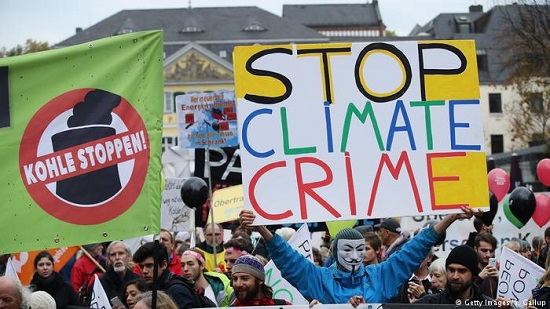
Carrying colorful banners with slogans that read "Revolution, not pollution," "Climate or coal chancellor?" and "Frack off our land," participants in Saturday's anti-coal march in Bonn criticized the German government's reliance on coal-fired power plants for the country's energy.
The former West German capital of Bonn is set to host the two-week climate conference, known as COP23, starting on Monday.
Demonstrators also highlighted the irony that this year's conference is being held 50 kilometers (31 miles) from Europe’s biggest source of CO2 emissions: the large open-cast mines near Cologne.
COP23: Thousands protest German coal use ahead of UN Climate Change Conference in Bonn by Katharina Wecker, Deutsche Welle (DW), Nov 4, 2017
The Weekend Wonk: Bloomberg, Brown at COP 23
Recommended, go to Michael Bloomberg’s remarks starting at 56:00, followed by Jerry Brown. (fyi Brown gets interrupted by demonstrators)
Takeaway: Cities, states, corporations and communities were already doing most of the climate mitigation work in the US, now they are more than picking up the slack left by the irresponsible, and soon to be deposed, administration.
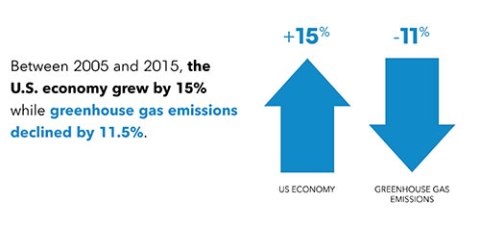
The Weekend Wonk: Bloomberg, Brown at COP 23, Climate Denial Crock of the Weekby Peter Sinclair, Nov 12, 2017
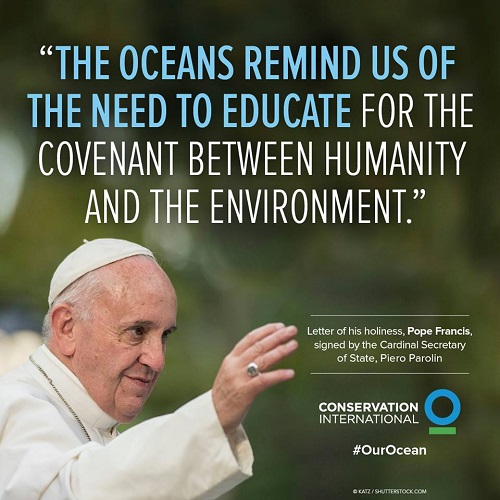
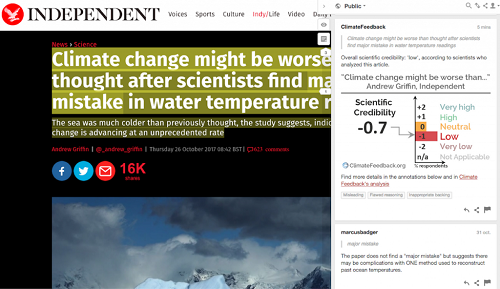
Climate Feedback asked its network of scientists to review the article, Climate change might be worse than thought after scientists find major mistake in water temperature readings by Andrew Griffin, The Independent, Oct 26, 2017
Three scientists analyzed the article and estimate its overall scientific credibility to be 'low'.
A majority of reviewers tagged the article as: Flawed reasoning, Inappropriate backing, Misleading.
Review Summary
This article in The Independent describes a study examining one type of “proxy” record for past global temperatures the geologic record. The study found a potential problem with temperature estimates for time periods tens of millions of years ago, but this article concludes that the study means current climate change is “far worse than previously calculated”.
Scientists who reviewed the article explained that this conclusion is not logically connected to the contents of the study. The article exaggerates the study’s implications for records of past climate—there are multiple types of proxy records that have been used to study those time periods— and invents implications for future warming.
The Independent makes a giant leap in stating that modern global warming could be “worse than thought” based on a single study, Climate Feedback, Nov 1, 2017
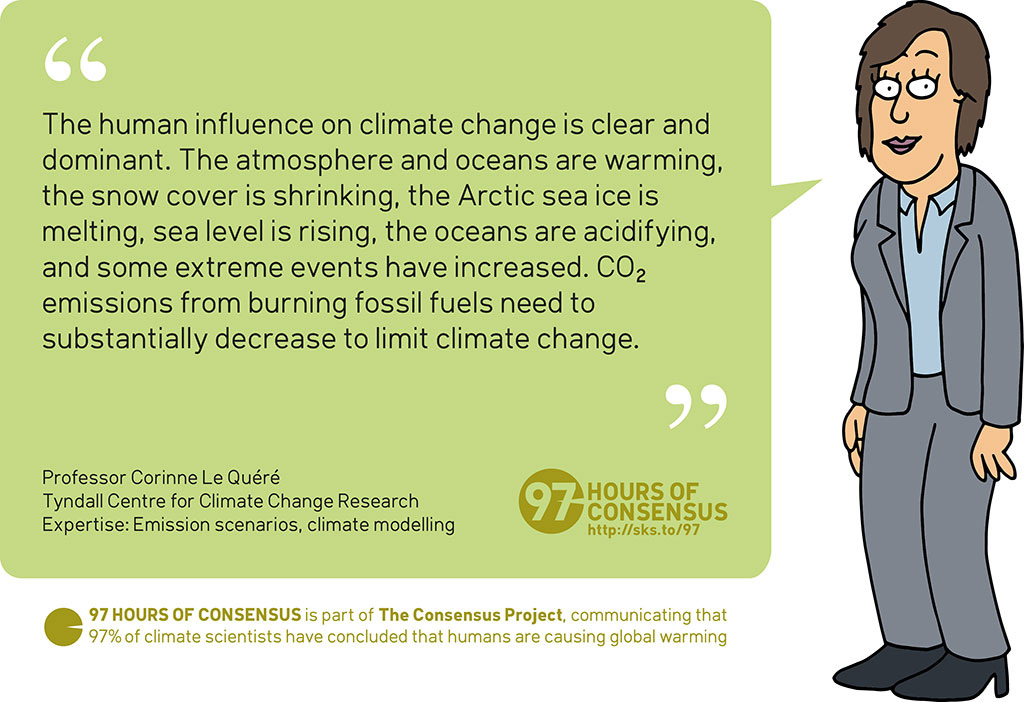
Quote derived from:
"The human influence on climate change is clear and dominant. The atmosphere and oceans are warming, the snow cover is shrinking, the Arctic sea ice is melting, sea level is rising, the oceans are acidifying, and some extreme events have increased. CO2 emissions from burning fossil fuels need to substantial decrease to limit climate change."
High resolution JPEG (1024 pixels wide)
Posted by John Hartz on Sunday, 12 November, 2017
 |
The Skeptical Science website by Skeptical Science is licensed under a Creative Commons Attribution 3.0 Unported License. |